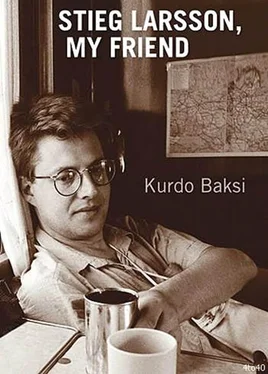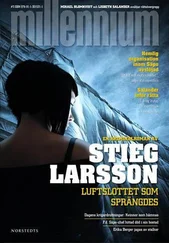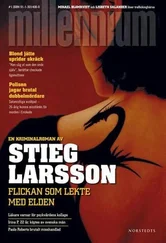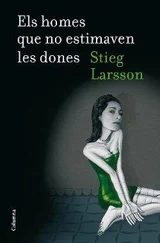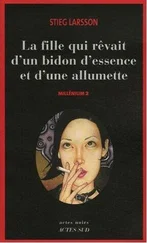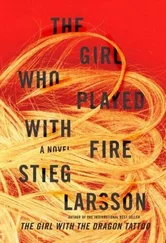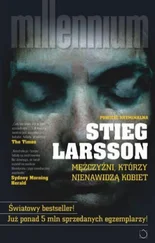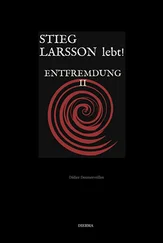How can one explain such unprovoked violence? Is it possible to understand such bestial treatment simply because somebody has a foreign-sounding name?
The next victim of racist violence was Patrick Nadji, an asylumseeker from the Ivory Coast. Two young neo-Nazis stabbed Patrick to death in Klippan, in Skåne. Why? “Because,” according to the murderers, “he was a nigger.” Moreover, the young man wielding the knife considered himself to be innocent: “I didn’t do nothing. The nigger just jumped on to my knife.”
It is one thing to associate neo-Nazi crimes with disaffected young people – it is no doubt possible to find all sorts of extenuating circumstances. But nobody should imagine that these were simply cases of isolated individuals acting out their fantasies about national superiority, ethnic cleansing and their other twisted ideologies. Expo was not content with exposing them as individuals. More important was the fact that there was increasing support for xenophobic tendencies in Swedish society. That was the root cause of the increase in hate crimes.
Despite Expo ’s many sympathizers, problems soon started piling up. As the threats increased, advertising decreased. The number of subscribers sank steadily towards a thousand – the goal originally had been five thousand, but even when the journal was enjoying its greatest success, in the spring of 1996, the number was no more than two thousand.
In addition, one of the journal’s staff stole 50,000 kronor from the sparse kitty because, as he put it, he needed money “to pick up women at Café Opera”. To crown it all, a serious credibility problem arose when it was disclosed that one of Expo ’s researchers had been reported to the police for criminal damage.
But the most serious threat to Expo ’s existence was that there were too many colleagues pulling in different directions. Everybody worked almost 24/7. They woke up to Expo and dreamt of Expo . There was no time to stop and think; all that mattered was hard work, generally unpaid. There came a point when Stieg demanded even more sacrifices, but his colleagues felt they had given up enough of their time and their private lives. His solution was to work even harder. Everybody was aware of his inexhaustible capacity for work. The problem was that he demanded just as much of his colleagues as he did from himself.
Despite the enormous amount of work put into it, the journal found itself teetering on the brink of bankruptcy. In the end it was obvious to everybody that even Stieg was under extreme pressure. He seemed more and more worried, and his smile became increasingly strained. The prophets of doom were only too ready to put the boot in. They said Stieg was not cut out to be a manager, that he was a catastrophe as an administrator and financial officer. In many ways they were right. Stieg was fantastic with language, but only human (to say the least) when it came to figures and statistics. He was driven by the conviction that Sweden required a journal to keep an eye on anti-democratic developments. In order to produce one, he needed a closely knit team to work tirelessly on an idealistic basis for little financial reward.
That was when everything unravelled. Several contributors resigned from the editorial board, which in turn meant that those who stayed on had to work even harder. Stieg never really forgave the ones who left, even though he must have realized that, less than three years after its launch, Expo was about to sink.
During 1996 and 1997 the editorial board could have been compared to a football team. It comprised Stieg, Andreas, Jenny, Emmy, Tobias, Katarina, Peter, David, Micael, Mikael and a graphic designer. Stieg began as goalkeeper, in order to have the best possible overall view. But as colleagues resigned he also became team captain. That wasn’t enough. So he decided to become the team’s trainer as well. That wasn’t enough either, because he was forced to accept the fact that the number of players at his disposal was becoming fewer and fewer. Having urged them to take the field for one final effort, he asked the referee for extra time.
Stieg refused to let Expo die. The idea that it was over and done for was not something that he could possibly contemplate. This despite the fact that it was clear to any objective observer that the journal was beyond help. Little did I think that I would play a leading role in the reincarnation of Expo lurking round the corner.
I knew that Stieg was under extreme pressure. It was obvious that Expo ’s misfortunes were taking their toll. We had been meeting regularly for some years and regarded each other as close friends. He called me his kid brother and I called him my big brother. At first it was mainly for fun, but as time passed the names became a true reflection of our mutual trust.
One day in May 1998, we were in one of Stieg’s favourite cafés, Il Caffè in Kungsholmen, and I had barely taken my first sip of coffee before it became clear that he had something important on his mind.
“Do you realize that I have very few real friends?”
Shaking my head, I said, “Perhaps you work too hard. Friends demand time, we both know that.”
He agreed, and looked sad, almost dejected, which was very unlike him.
“ Expo is in ruins,” he said, looking down at his feet.
“So I’ve gathered.”
“We haven’t been able to do any proper journalism for ages. But we do have a trump card – our archive on neo-Nazism and racism in Europe.”
Then something remarkable happened. It was as if at that very moment Stieg began to relive everything the journal had achieved, as if the solution to all its problems had suddenly dawned on him. Presumably he had already decided what he was going to do, but he gave the impression that it was happening even as he spoke, as if his words were leading him on. It was almost as if this was the moment when he regained his faith in Expo . As if an idea had just struck like a flash of lightning and taken possession of him.
“It’s time to take some decisions,” he said, leaning back in the little chair at the rear of the café. “I’ve been looking for a collaborator who will allow Expo to go its own way. I want to work with a journal without links to any particular political party. I’m tired of people accusing us of being a journal linked to the left.”
Then he leaned forward and looked me in the eye.
“I’ll come clean. We have about sixty kronor in the kitty. Do you think you could come to Expo ’s rescue?”
I sat there in astonishment.
“How do you think that would be possible?”
“I thought you’d ask that,” he said, stubbing out his cigarette. The smile I was so familiar with returned to his face, those sparkling eyes and the gesticulating hands. “I want Expo and Svartvitt to join forces. Expo will be a financial burden, but you’ll earn a lot of goodwill. Besides, I’m convinced that you will be rewarded some time in the future.”
I couldn’t help laughing at such an optimistic prophesy, but Stieg merely brushed my laughter aside and continued.
“Now to the nitty-gritty. I want you to fund the printing and distribution of Expo . I’ll take care of the editorial side. Svartvitt ’s editorial staff are experienced in administering and funding a magazine. My colleagues and I are good at research and journalism, but we don’t seem to be much good at anything else.”
I leaned back in my chair and wondered what on earth to say. I had thought we were going to have a cup of coffee and chat like we usually did. Now I found myself faced with a proposal to merge our journals.
I said nothing for quite a while. I agreed totally with Stieg that our publications had a lot in common. Unfortunately the financial state of both operations was also more similar than he seemed to realize. The National Council for Cultural Affairs had just cut Svartvitt ’s grant to 30,000 kronor. I had been so angry that I had called it “pin money”, or so some cultural journalists had claimed. In order to make a point I had rejected the grant altogether. To make matters worse, we had just moved into larger premises in Pilgatan. You could hardly say that Svartvitt was in a fit state to take on new costs.
Читать дальше
